



Modern Product & AI
Note from the CEO & Co-founder Kamila Staryga
Date 04/15/2025
My Fertility Journey: From Misdiagnosis to Motherhood and Innovation
“I’m Kamila Staryga, founder of Rita Health. At 21, I was misdiagnosed with PCOS (Polycystic Ovary Syndrome)—a condition that affects fertility and hormonal balance in millions of women. I was told I might never become a mom. I was prescribed intense hormone treatments, but deep down, I knew there had to be another way. I refused to accept infertility as my fate.
I began a deep, personal journey to understand reproductive health, hormonal imbalances, and the natural rhythms of the female body. Eight years later, that journey led me to a life-changing women’s health course in St. Petersburg, where I finally learned to tune into my cycle, body, and fertility potential.
My career path mirrored this transformation. Raised in communist Poland, where traveling was restricted, I later earned an engineering degree from the University of Cambridge, unlocking global opportunities. I joined Google London and then Google X in Mountain View, where I applied advanced technologies to healthcare.
In 2014, I studied at Singularity University, co-founded by Peter Diamandis and Ray Kurzweil. There, I co-created a smart menstrual health pad and was honored as an MIT Innovator Under 35. Back then, terms like femtech, digital fertility tools, or women's health tech didn’t even exist. But I knew my mission: to harness cutting-edge innovation to improve female reproductive health.
That mission deepened when I led product innovation at Flo Health, one of the world’s most downloaded period tracking and ovulation apps. I was Flo’s first U.S. hire—back when no one believed that fertility apps or cycle tracking technology could be meaningful. Today, Flo has over 100 million users and generates over $300 million in annual revenue.
My personal fears—of infertility, of balancing career and motherhood, of losing time—were real. Now, as a proud mother of two, I know that the struggle was worth it. But I also know it doesn’t have to be this hard for others.
That’s why I co-founded Rita Health. We help women prepare for pregnancy earlier, with science-backed fertility assessments, personalized care plans, and expert guidance. We use AI in fertility to scale access to clinical insights, reduce uncertainty, and give women more control over their future.
Because every woman deserves to feel confident in her body, empowered in her choices, and supported in her fertility journey.”
~~
Kamila Staryga is an entrepreneur and product executive with 15 years of experience driving innovation across women’s health and AI. Before founding Rita Health, she built and launched breakthrough technologies, including AI for depression detection at Google X, advanced micro-radar technology at ATAP—Google’s mobile innovation lab under Regina Dugan—and digital health solutions at Flo, the world’s leading period tracker.
Note from the Co-founder Alessia Morichi
My Path to Motherhood After Unexplained Infertility
TW: Pregnancy Loss, Pregnancy Test Picture and Rainbow Baby
Date: 04/03/2025
Dear Community,
For those of you who've been with us from the start, you know me. To everyone else, I'm Alessia, one of Rita's co-founders, deeply passionate about empowering women through fertility awareness.
I'm writing to you from across the ocean, where I moved to be closer to family and, ultimately, to start my own. After three years of navigating the complexities of trying to conceive, that dream is finally coming true – I'm 4 weeks away from the due date of our rainbow baby.
This journey wouldn't have been possible without Rita's fertility assessment, which provided invaluable insights and gave me the courage to explore fertility support options.
When Kamila and I began developing the assessment, I was fresh from my honeymoon and just at the beginning of my trying to conceive journey and to be honest, I wasn't overly concerned about delaying conception. I was a little annoyed that things didn’t happen immediately, sure, but I thought I had plenty of time. Meanwhile, as months passed, the Rita assessment was nearing completion, and our team of doctors, scientists, and experts were working tirelessly, validating its accuracy in predicting fertility challenges.
During this time, I also had check-ups at UCSF, just to ensure there were no underlying male or female infertility issues. Everything seemed fine, and I continued tracking my cervical mucus, using ovulation predictor kits, eating healthily, and staying active – the typical fertility journey routine.
Then, when I’d almost given up on natural conception, I got my first positive pregnancy test ever in Rio de Janeiro, at a friend's wedding. Not the ideal place, with the Zika concerns, but I was in complete shock.
The excitement, however, was short-lived. Back in San Francisco, I experienced a miscarriage at eight weeks. While devastating, I was also struck by the incredible resilience of the female body, its natural ability to ensure only viable pregnancies continue. At that point, the moving company had already picked up my boxes and shipped them to Europe, where I was planning to deliver the baby.
Throughout this difficult period, the Rita team and I were still hard at work, rigorously testing the assessment, verifying the accuracy of the predictions and the AI model.
When the Beta version was ready, and I went through the full experience myself, I was stunned. The fertility assessment placed me among the women who might need assistance to conceive. Until that moment, I never thought I might need assisted reproductive technology (ART), possibly due to unexplained infertility.
I initially dismissed it, thinking I'd rushed through the questions. Deep down, though, I knew I was avoiding the truth. I felt like I was letting our community down, like I wasn't practicing what we preached regarding proactive fertility planning, courage and taking actions.
I timidly faced one unmedicated round of IUI but it didn’t work out as expected.
We officially launched the Rita Fertility assessment, and it wasn't until I moved to Italy that I had the time to truly reflect on my fertility options. It took a very thoughtful and direct OBGYN to say, "Listen, I can see how this is impacting you mentally and physically…” - Indeed, I also started suffering from chronic back pain that limited my left leg usage for months - “We can keep guessing and hoping, or we can start the IVF process." continued the OBGYN. She confirmed what the Rita assessment had shown, and by then, I had healed from the emotional pain of the miscarriage and was ready to move forward.
The IVF success rates given to us as a healthy couple with an idiopathic infertility diagnosis were 40%. I felt the projections were overly positive but I tried to stay positive myself. We were incredibly fortunate to conceive on our first IVF cycle, with minimal hormonal injections and medication support. Now, it seems our little miracle is about to be with us (we still keep our fingers crossed).
Ultimately, my journey is a testament to the power of knowledge and proactive care, and I hope it inspires you to embrace your own fertility journey with courage and help you explore the resources available to you, like Rita’s assessment, with an open heart.
Alessia Morichi is a marketing strategist and startup founder with nearly 15 years of experience driving innovation at the intersection of digital health and wellness. As co-founder of Rita Health, she played a pivotal role in launching a digital fertility assessment platform aimed at empowering women with proactive reproductive insights. Now Alesia leads the brand and product marketing at Elty di DaVinci Salute, where she championed the integration of user-centric design and digital engagement in health services. She is also an active mentor supporting early-stage startups focused on health tech and women's wellbeing.